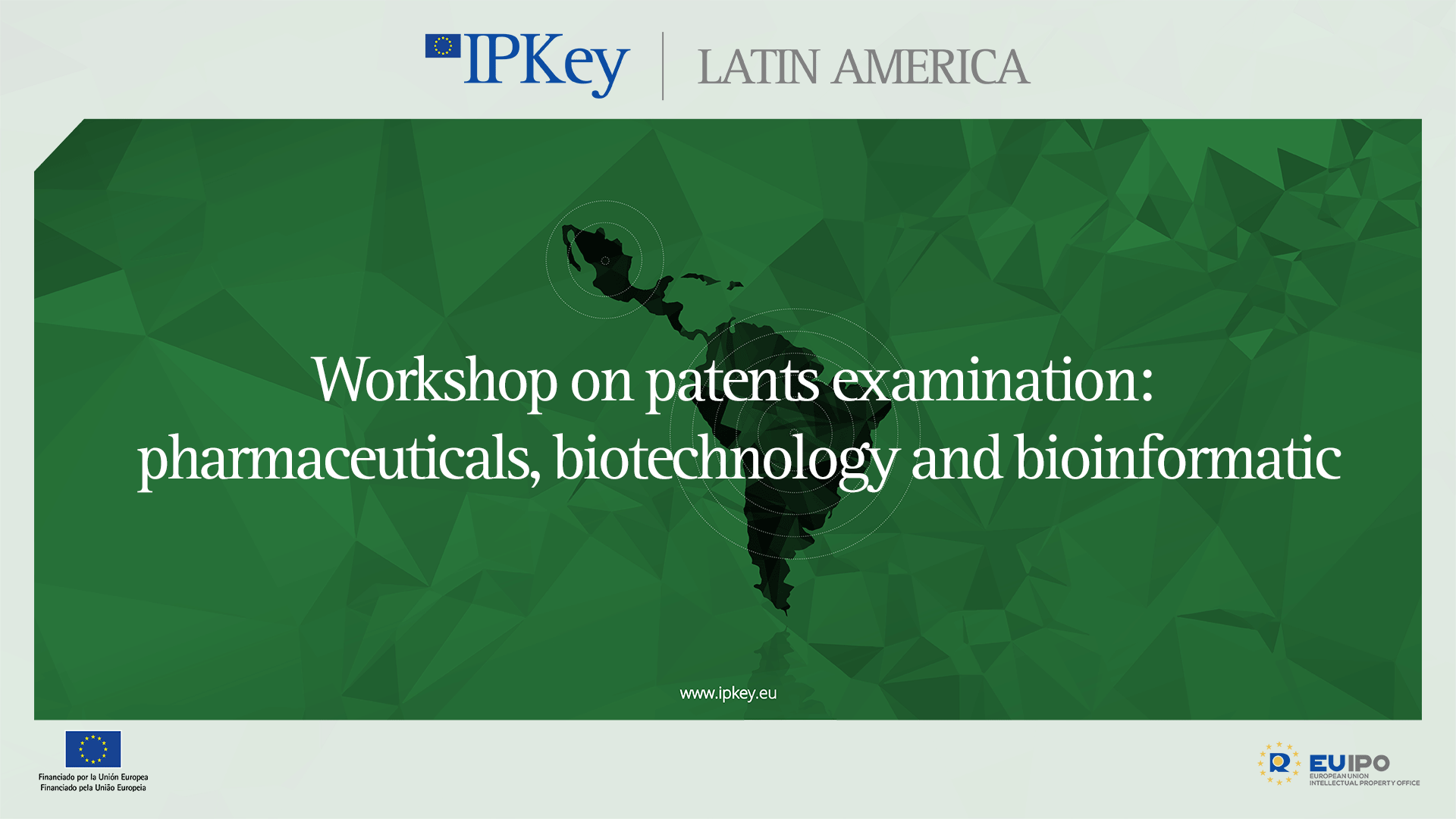Workshop for Patent Examiners from Latin American IP Offices: Pharmaceuticals, Biotechnology and Bioinformatics
The ‘Workshop for Patent Examiners from Latin American IP Offices: Pharma, Biotechnology and Bioinformatics’ was successfully concluded after two days of intensive training for patent examiners from the region. Held virtually on 3 and 4 September 2024, the workshop was organised by EUIPO, in the context of the IP Key Latin America project, in collaboration with the European Patent Office (EPO). The main objective was to improve the capacity of examiners to review patent applications in these specialised fields. Attended by 89 examiners, the workshop brought together participants from Latin American countries such as Costa Rica, El Salvador, Guatemala, Honduras, Mexico, Panama and the Dominican Republic.
The first day was devoted to pharmaceuticals and biotechnology, and provided an overview of the substantive examination process for these technologies. Experts from the Spanish Patent and Trademark Office (SPTO) led sessions on the nuances of examining pharmaceutical patent applications and the unique aspects of biotechnology inventions. Attendees had the opportunity to interact with leading examiners, such as Gemma Esteban García and Ana Ugidos Valladares, who highlighted crucial points about patentability in these fields. Helena Domingues from the EPO also contributed with an in-depth discussion on biopharmaceutical patentability, particularly in the context of antibodies and vaccines.
The second day focused on bioinformatics, specifically inventions that exploit computational methods to solve biological and genetic problems. EPO expert Pedro Farina guided participants through the substantive examination of bioinformatics inventions, discussing patent classification schemes and offering practical case studies. This session provided participants with a better understanding of how to evaluate complex bioinformatics applications, especially those involving algorithmic data analysis, and ended with a discussion on the patentability of these technologies.
In short, the workshop not only provided valuable technical knowledge, but also fostered collaboration between patent offices in the region. The success of the event was confirmed by the high level of engagement of the participants and the insightful contributions of European and local experts, thus promoting more efficient and harmonised patent examination processes in the region.
